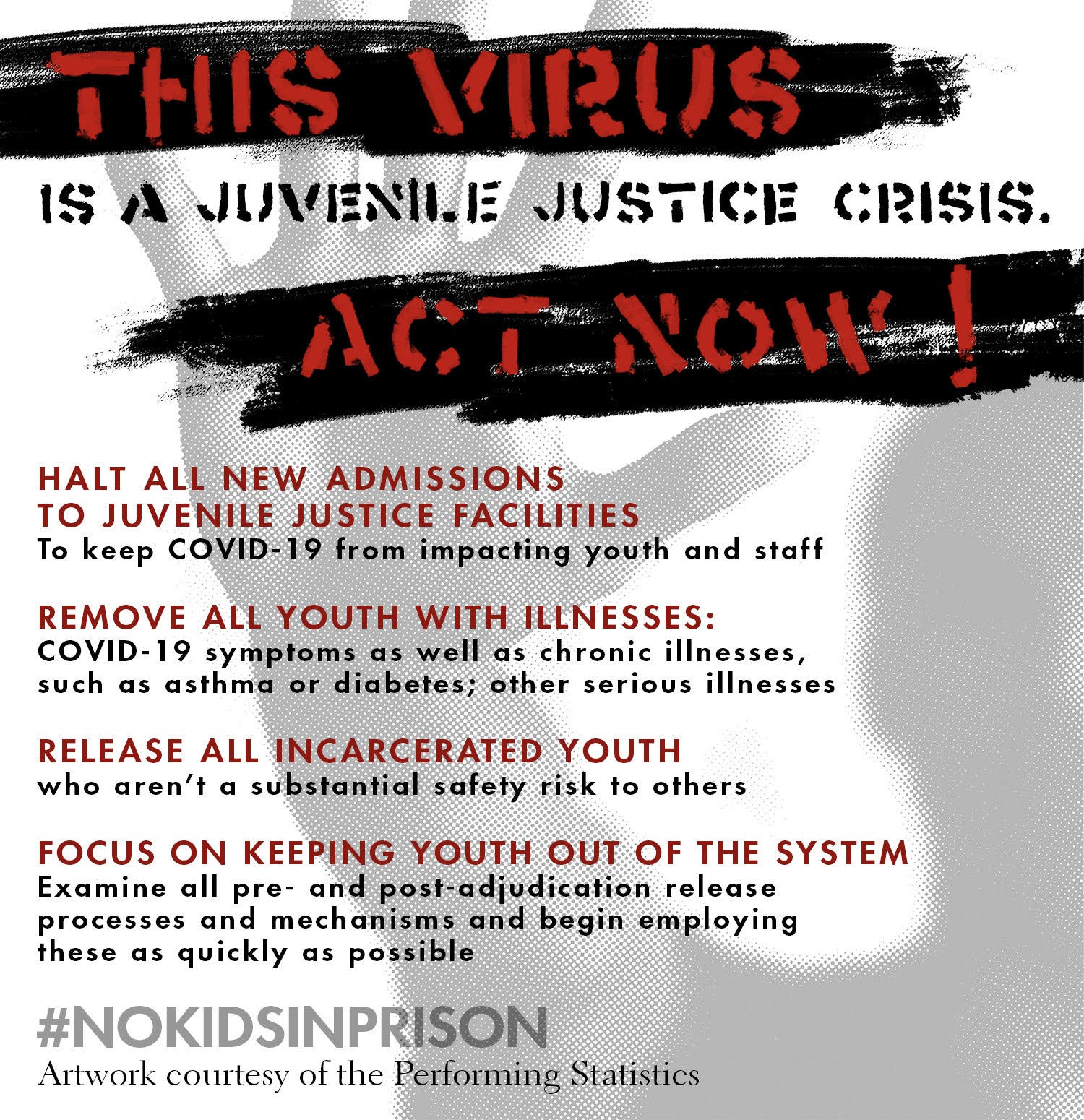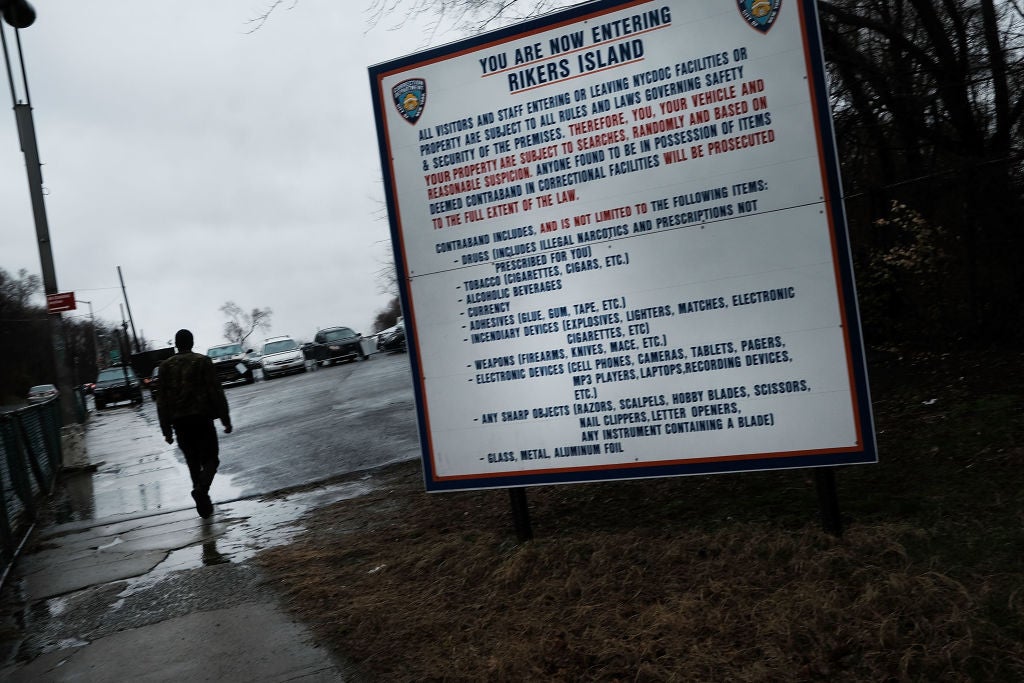As COVID-19 continues to transform daily life around the globe, more attention has turned to incarcerated people. Jails and prisons, already notorious for horrific healthcare and forced labor, are potentially on the brink of an even greater human rights crisis as COVID-19 moves behind bars.
Several prisons in cities and states across the U.S. (Long Island, Michigan, Washington, Santa Clara, and more) have confirmed that at least one of their staff members and/or incarcerated people has tested positive for COVID-19, with at least one incarcerated person on Rikers Island testing positive. Those that have been identified and exhibit symptoms remain in quarantine, but it isn’t clear how many prisoners remain asymptomatic and/or suffer from prison overcrowding and inaccessible care. On Sunday, a New York Department of Corrections officer died from the disease, with the DOC ensuring that the deceased had limited contact with individuals in custody.
According to the Hill, “Incarcerated persons present with elevated risks for chronic and infectious disease and have reduced life expectancy, with 12 percent of the state and federal prison population being 55 years of age or older.”
To help stop the novel coronavirus from spreading, New York City’s Board of Correction has “called for the immediate release of all high-risk inmates after the investigator assigned to the jail system died over the weekend of the coronavirus,” NBC New York reports.
In-person contact visits are being canceled or suspended, as thousands of inmates worry about the wellbeing of their families, comforting them from afar. Legal time-sensitive visits continue, with strict precautions to avoid transmission. Inmate facility transfers, staff travel, in person training, and tours are all suspended. Facilities and their operations are being modified, with incoming inmates going through mandatory health screenings. Staff is also screened and encouraged to self report.
State health, emergency response and community organizations are setting up action plans to slow the spread of COVID-19 on incarcerated populations given that they are in contained facilities, and while conversations to temporarily release non-violent inmates are being had, there has been no development of this approach on a large scale.
Given the inadequate resources dedicated to the well being of prisoners in combination with the containment policies and lack of fresh air and outside movement, more will inevitably be diagnosed and the disease will continue to spread. It’s important now more than ever that we consider and rededicate ourselves to prison reform, and eventually, abolition.
To that end, No Kids In Prison’s Youth First Initiative has issued the following demands to help incarcerated youth in the juvenile detention system during the COVID-19 outbreak.
- Halt all new admissions to juveniles justice facilities.
- Remove all youth with illnesses.
- Release all incarcerated youth.
- Focus on keeping youth out of the system.

And Community Justice Exchange has created a 10-point list of demands and expectations for the treatment of incarcerated persons during these tumultuous times.
- Release people from incarceration.
- Stop asking for new people to be incarcerated.
- Loosen restrictions on GPS, Electronic Monitoring (“EM”) or “House Arrest.”
- Eliminate pretrial, parole, probation check-ins, ICE-check-ins and mandatory appearance at court continuances.
- People who are incarcerated should have thorough access to preventive measures, medical testing, and treatment without co-pays or additional costs.
- People who are incarcerated should not be subjected to further punitive measures as guise for containing the virus.
- People who are incarcerated should continue to be able to meaningfully contribute to their legal case.
- Cease all ICE and CBP operations.
- Incarcerated people should not be forced to provide services for emergency response.
- Government agencies in charge of prosecution and incarceration should have a plan in place and that plan should be transparent and public.
*****
ESSENCE is committed to bringing our audience the latest facts about COVID-19 (coronavirus). Our content team is closely monitoring the developing details surrounding the virus via official sources and health care experts, including the World Health Organization (WHO), the Centers for Disease Control and Prevention (CDC) and the Occupational Safety and Health Administration (OSHA). Please continue to refresh ESSENCE’s informational hub for updates on COVID-19, as well as for tips on taking care of yourselves, your families and your communities.
